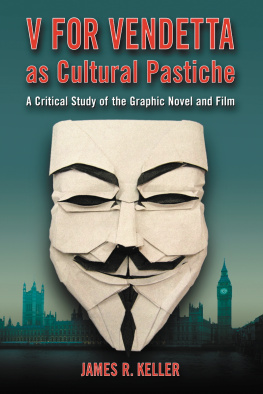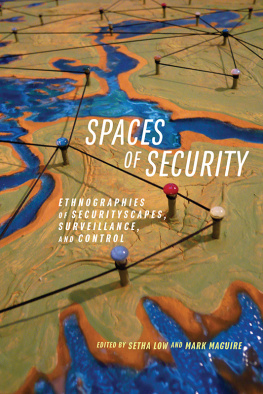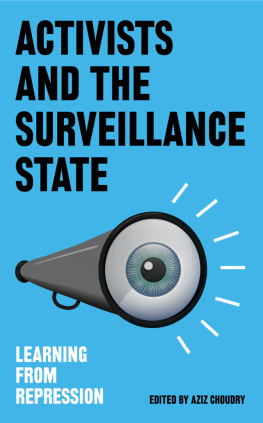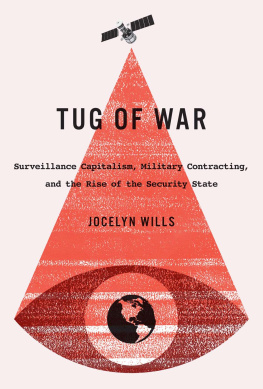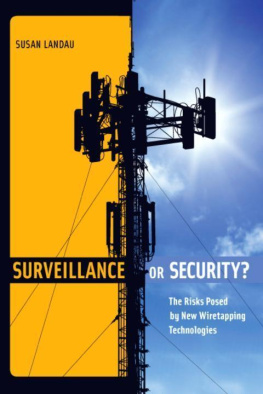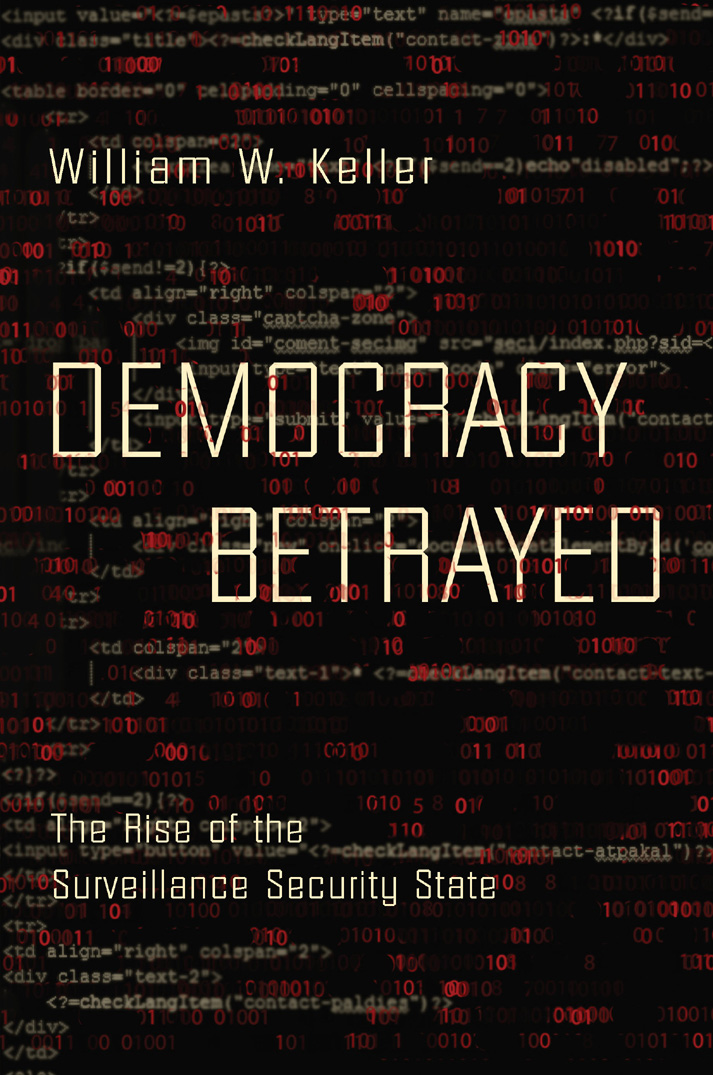
Copyright 2017 by William W. Keller
All rights reserved under International and Pan-American Copyright Conventions. No part of this book may be used or reproduced in any manner whatsoever without written permission from the publisher, except in the case of brief quotations embodied in critical articles and reviews.
Library of Congress Cataloging-in-Publication Data is Available
Cover design by Faceout, Charles Brock
Interior design by Domini Dragoone
COUNTERPOINT
2560 Ninth Street, Suite 318
Berkeley, CA 94710
www.counterpointpress.com
Distributed by Publishers Group West
10 9 8 7 6 5 4 3 2 1
ebook ISBN 9781619028906
For Lonna
ACKNOWLEDGMENTS
Various teachers and friends have informed this book. I think first about Frances Richardson Keller, who taught me history and writing. I have had the great fortune of knowing extraordinary thinkers. Theodore J. Lowi is a lifelong mentor and friend. I had the privilege of studying with him at Cornell University, where I was also influenced by the intellectual honesty and deep scholarship of Sidney G. Tarrow. At Princeton University, I was profoundly lucky to take courses from Thomas Kuhn and Carl Hempel, both of whom taught me to look beyond the received wisdom, especially in the progress of science. John Hope Franklin and William H. McNeill both took an interest in me when I was quite a young man at the University of Chicago. To all of them, my heartfelt thanks.
Several friends and colleagues commented on drafts of the manuscript. Margaret Crosby, Jacques Hymans, Bruce Jentleson, Loch Johnson, Ren Keller, Louis Pauly, Thomas Rawski, Simon Reich, David Robertson, and Charlie Savage all made helpful comments, saving me from various errors and omissions. I am not sure we are all in complete agreement, but as far as that goes, none of them is a stranger to political or intellectual controversy.
My agent, Claire Gerus, helped me to focus the scope and expand the range of the manuscript. The book most certainly benefited from close review by two extraordinary editors, Roger Hayden of Cornell University Press and Dan Smetanka of Counterpoint Press. Both read the full manuscript and helped to improve it in many ways.
W.K.
The Sea Ranch,
California
Table of Contents
Guide
Table of Contents

History tells us that great leaders arise when the Republic is in peril. George Washington united a fractious people throughout the Founding. Abraham Lincoln presided over the Civil War and the abolition of slavery. And Franklin Roosevelt confronted the Great Depression and then fascism during World War II. In the 21st century, democracy again faces a sustained challenge, an onslaught to the core values of Western democratic peoples. The threat comes not so much from violent extremism, as is commonly supposed, but from our responses to it that diminish our civil liberties and our freedom.
Western leaders appear to have lost their compass. They have delegated the safety of the nation to a newly empowered class of internal security and intelligence professionals. These unelected officials privilege security over liberty, secrecy over transparency, surveillance over privacy, detention over rule of law, and power over democratic accountability. While they proclaim democratic values, their handiwork is evident in a hardened society in which local police deploy SWAT units with military weapons, public buildings are closed to the public, and daily communications among ordinary persons are monitored and recorded. No great leader has yet arisen to confront this challenge. Indeed, most seem captured by or complicit with the pervasive security and intelligence apparatus.
For 200 years, the U.S. Capitol Building was a beacon to free peoples, its beautiful tiled floors, ornate columns, vaulted ceilings, storied chambers, and cultural treasures open to the public. But that was before 9/11. Today it is a fortress, its empty halls defended by police toting automatic weapons. Visitors are shunted to a new Visitor Center, which cost $621 million to build. It is a secure dugout located beneath the parking lot on the eastern front of the Capitol Building. It is a place where members do not go and business is not transacted. It is, instead, a cavern filled with historical tributes and propaganda. There was a time, not long ago, when the U.S. Capitol Building provided inspiration to millions of visitors; today it is the refuge of some 535 members of Congress, their staffs, and major donors.
Secrecy has always been a central feature of statecraft. As Cardinal Richelieuwho used authoritarian methods to consolidate the French state under King Louis XIIIfamously put it, Secrecy is the first essential in affairs of state. And so it is today, especially in the conduct of foreign affairs. But Richelieus aphorism applies as well to internal security, which is increasingly equated with national security, and typically opaqueeven to most elected officials. Moreover, the relationship between foreign policy and internal security is often blurred. It is a reversal in which internal security considerations drive foreign military commitments and Counterterror Wars. Intelligence agents and elite military units conduct combat operations side by side.
A country that places all of this security over the rights of its populace is in a condition that I call Secure Democracy. In Secure Democracy, the secrecy that shrouds our internal security is a clear and present danger to liberalism. An apparatus we will come to know as the Security Industrial Complex hides hundreds of thousands of security personnel and their activities from public scrutiny, and often from the investigatory powers of prosecutors in the courts. As a consequence, many activities take place that are contrary to rule of law. They are seldom discovered. And even when they are, agents and other perpetrators are rarely held accountable. The cases against them are dropped or sealed because pursuing them might reveal intelligence sources and methods or other classified information. It is ironic indeed that many of the prisoners illegally detained at the U.S. Naval Station at Guantnamo Bay could not be prosecuted for the same reasons.
The great documents that establish modern liberal states have little use for internal security and do not even refer to itthe U.S. Constitution (1787), the French Declaration of the Rights of Man (1789), and, most recently, the Charter of Fundamental Rights of the European Union (2009). Indeed, these documents can broadly be construed as efforts to establish and maintain an open society. They pierce the secrecy and limit the powers of the executive state, making it more transparent, flexible, responsive to rule of law, and tolerantso that the rights of individuals can be protected against the powers of government.
State secrecy and internal security are pervasive elements of Secure Democracy. This can be seen in the precipitous rise in security budgets, the construction of extensive new counterterrorism facilities, and dramatic increases in the numbers of police and intelligence agents in the post-9/11 period. When extraordinary powers of internal security are fully established and accepted as a legitimate state function, it is extremely difficult for an individual, civil-society groups, or even other parts of the government to challenge them. Excessive internal security is, accordingly, a structural element of Secure Democracy. It poses a threat to the open society and generally to the rights and liberties of everyone.


